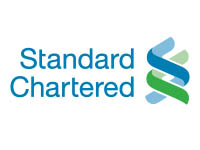
Canadian dollar pares losses as rate-hike odds oscillate near 50 per cent
The Canadian dollar weakened to a one-year low against its U.S. counterpart on Wednesday before paring some losses as remarks by Bank of Canada governor Stephen Poloz left investors guessing about prospects for an interest rate hike next month.
At 5 p.m. EDT, the Canadian dollar was trading 0.2 per cent lower at $1.3336 to the greenback, or 74.99 U.S. cents.
The currency touched its weakest intraday since June 12, 2017 at $1.3386.
The effects of U.S. steel and aluminum tariffs and tighter mortgage rules will “figure prominently” in the Bank of Canada’s July decision on interest rates, Poloz said in a speech, before making clear in a news conference that an interest rate hike is still on the table for July.
“The speech left investors with a sense that Governor Poloz is on the fence about the upcoming rate decision,” said Royce Mendes, senior economist at CIBC Capital Markets. “He made references to the Bank of Canada being particularly data dependent right now.”
Chances of a rate hike at the July 11 announcement initially fell to less than 50 per cent but then recovered to match the level before the speech at 55 per cent, data from the overnight index swaps market showed.
Canada’s gross domestic product data for April and the Bank of Canada Business Outlook Survey are due on Friday.
The price of oil, one of Canada’s major exports, was supported by U.S. demands that importers stop buying Iranian crude from November. U.S. crude prices settled 3.2 per cent higher at $72.76 a barrel.
Some of the benefit of higher prices, however, could be lost for Canada due to a supply outage at the Syncrude oil sands facility in Alberta, with repairs expected to last at least through July.
U.S. stocks fell on renewed uncertainty regarding the U.S. stance on Chinese investments in American technology companies.
Canada runs a current account deficit so its economy could be hurt if the flow of trade or capital slows.
The country also has its own trade dispute with the United States and is in slow-moving talks to revamp the North American Free Trade Agreement.
Canadian government bond prices were mixed across the yield curve, with the 10-year rising 10 Canadian cents to yield 2.094 per cent.
The 10-year yield touched its lowest intraday since Jan. 4 at 2.056 per cent.
Latest Posts

CEO’s Connect 2024: Exploring Business Opportunities for Economic Growth
September 05, 2024

September 05, 2024

August 08, 2024

157TH Canada Day Celebration: Celebrating Strong Bilateral Trade between Canada and Ghana
July 01, 2024

FATHER’S DAY DINNER WITH PRINCE KOFI AMOABENG
July 01, 2024

FREIGHT FORWARDERS AND LOGISTICS SECTOR MEETING
July 01, 2024

Celebrating Women at the Mother’s Day Dinner
June 03, 2024

CANCHAM Pharmaceutical Sector Meeting Highlights
June 03, 2024

In-house Presentation (May Edition)
June 03, 2024

CANCHAM ANNUAL GENERAL MEETING
May 08, 2024

Construction Sector Meeting Hosted by CANCHAM
May 08, 2024

INDUSTRIAL TOUR TO MERIDIAN PARK BY LMI HOLDINGS
May 08, 2024

A JAZZ AND WHISKY AFFAIR: A Tri-Chamber Collaboration!
May 08, 2024

May 08, 2024

EMPOWERING THE FUTURE: ALINEA FOUNDATION’S WEE-NORTH PROJECT AGM
April 04, 2024

EMPOWERING CHANGE: CANCHAM AND JOY BUSINESS INTERNATIONAL WOMEN’S DAY DIALOGUE
April 04, 2024

April 04, 2024

EXPLORING FLAVORFUL HORIZONS: A JOURNEY WITH FREDDIE BEVERAGES
April 04, 2024

EXPLORING HORIZONS: INSIGHTS FROM HOLLARD INSURANCE’S JOURNEY
April 04, 2024

UNLOCKING OPPORTUNITIES: SENA CHARTERED SECRETARIES LIMITED’S EXPANSION ENDEAVOR
April 04, 2024









